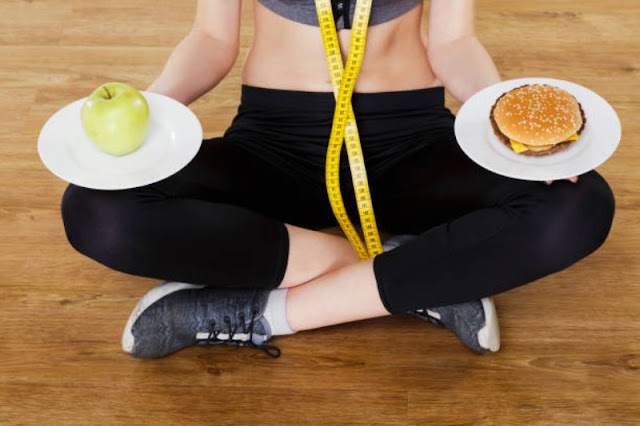Featured
- Get link
- X
- Other Apps
Optimal Performance and Recovery in Swimmers

Nutrition and Hydration Strategies for Optimal Performance and Recovery in
Swimmers
Swimming is a bodily demanding sport that requires a
combination of strength, endurance, and technique. To perform at their best,
swimmers must pay close attention to their nutrition and hydration strategies.
A well-balanced diet and proper hydration not only enhance performance in the
pool but also aid in post-workout recovery. In this object, we will explore the
key components of a swimmer's diet, the importance of hydration, and effective
timing for meals and snacks to support swimmers' energy levels and overall
well-being.
The Role of Nutrition in Swimming Performance:
Carbohydrates:
Carbohydrates are the body's primary source of energy,
making them a crucial component of a swimmer's diet. Swimmers engage in
rigorous workouts that deplete glycogen stores, the body's stored form of
carbohydrates. Consuming adequate carbohydrates helps replenish glycogen
levels, ensuring sustained energy during training and competitions. Sources of
complex carbohydrates like whole grains, fruits, and vegetables should be
prioritized to provide sustained energy release.
Protein:
Protein is energetic for muscle repair and growth. Swimmers'
muscles undergo considerable strain during training, and consuming enough
protein supports the recovery process. Lean bases of protein such as poultry,
fish, eggs, legumes, and dairy products can help repair muscle tissue and
prevent muscle breakdown.
Healthy Fats:
Healthy body fat play a role in overall health and can
provide a source of energy during longer swim sessions. Foods ironic in omega-3
fatty acids, such as fatty fish (salmon, mackerel), nuts, seeds, and avocados,
offer anti-inflammatory benefits that are particularly important for swimmers' joint
health.
Hydration for Swimmers:
Staying properly hydrated is essential for swimmers, as the
aquatic environment can mask feelings of thirst. Dehydration can negatively
impact performance, lead to muscle cramps, and impair cognitive function.
Swimmers should establish a hydration routine that includes the following
considerations:
Pre-Hydration:
Starting a swim session in a hydrated state is crucial.
Drinking water throughout the day before practice or competition helps ensure
optimal fluid levels in the body.
During Exercise:
During intense training sessions, swimmers should have
access to water at the poolside and take short breaks to hydrate. Sports drinks
containing electrolytes can also be beneficial for longer sessions, helping to
replace sodium and other minerals lost through sweat.
Post-Exercise:
After a swim, rehydration is essential to replace fluids
lost during the workout. A combination of water and beverages with electrolytes
can aid in recovery. Weighing yourself before and after a workout can help
estimate fluid loss, with each kilogram lost equivalent to approximately one
liter of fluid.
Meal and Snack Timing for Swimmers:
The timing of meals and snacks can significantly impact a
swimmer's performance and recovery. Optimal timing ensures adequate energy
levels without causing discomfort during workouts.
Pre-Swim Nutrition:
A stable meal containing carbohydrates, protein, and healthy
fats should be consumed 2-3 hours before swimming. This allows time for
digestion and energy utilization. Examples include oatmeal with fruit and nuts
or a turkey and avocado wrap.
Pre-Swim Snacks:
For swimmers who have less time before a workout, a small
snack rich in carbohydrates can provide quick energy. A banana with nut butter
or yogurt with granola are good options.
During-Swim Nutrition:
For longer training sessions, consuming easily digestible
carbohydrates such as energy gels or sports drinks can help maintain energy
levels. However, this is more relevant for practices lasting over an hour.
Post-Swim Recovery:
The post-workout meal is vital for replenishing glycogen
stores and promoting muscle recovery. A meal rich in protein and carbohydrates,
like grilled chicken with quinoa and vegetables, supports these processes.
Evening Snacks:
If evening training sessions are part of a swimmer's
routine, a light snack like Greek yogurt with berries or a handful of almonds
can aid recovery without being overly heavy before bedtime.
Conclusion:
Nutrition and hydration are cornerstones of a successful
swimming regimen. A well-balanced diet that emphasizes carbohydrates, protein,
and healthy fats fuels swimmers for peak performance, while proper hydration
ensures optimal endurance and overall well-being. Tailoring meal and snack
timing to training schedules helps swimmers make the most of their workouts and
enhance their recovery process. By prioritizing nutrition and hydration,
swimmers can dive into their training with confidence and achieve their goals
in the pool.
- Get link
- X
- Other Apps
Popular Posts
Adapting Your Diet to Different Fitness Goals
- Get link
- X
- Other Apps

